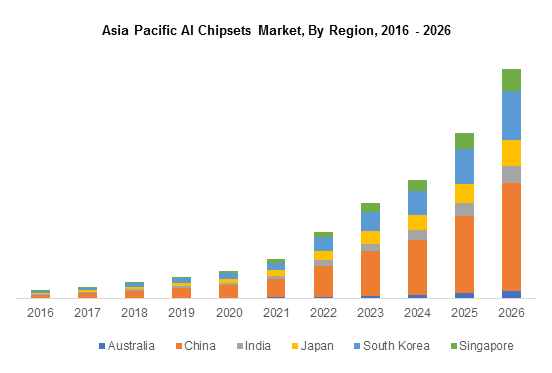Implications and Possibilities with ASICs

[ad_1]
The dawn of the AI age has brought with it a new contender in the race for processing supremacy—Application Specific Integrated Circuits (ASICs). These custom-built chips offer unparalleled efficiency when compared to their more versatile counterparts, like CPUs and GPUs. Major players like Google have already invested in ASIC technology, positioning them as a game-changer in the rapidly evolving AI industry.
As tech giants continue to place their bets on ASICs, it’s clear that they have the potential to reshape the AI landscape and become a driving force in the industry.
In this article, BeInCrypto delves into the rise of ASICs, their implications for the semiconductor market, and the exciting possibilities they bring to the future of AI.
Customization Unleashed for AI Processing
Google’s commitment to custom ASIC technology signaled a turning point in AI processing. ASICs, tailor-made for particular tasks, offer exceptional efficiency and speed. These attributes make them well-suited for AI workloads that require intensive processing power. Google’s Tensor Processing Units claim to achieve speeds ten times faster than previous models while consuming less than half the energy.
One notable example of ASIC’s impact on AI processing is Google’s TPU v4 supercomputer. By integrating over 4,000 TPUs with optical circuit switching, the company managed to increase its speed tenfold. While significantly reducing energy consumption. This breakthrough was made possible by the dynamic changes in the interconnect topology of the system. Enabled by Google’s own optical circuit switches. The TPU v4 supercomputer showcases the potential of ASICs in AI development and sets the stage for future advancements.
The Semiconductor Landscape Faces Disruption
The rise of ASICs has captured the attention of tech giants like NVIDIA, AMD, and Intel. As ASICs threaten to disrupt traditional GPU and CPU markets, the question remains. Will the Super 7, the world’s largest data centers, follow suit and create their own AI chips? The future of GPUs and FPGAs hangs in the balance, with the industry potentially adopting a mix of technologies to drive innovation and progress.
NVIDIA, for instance, has been developing its own AI-specific chips, known as Tensor Cores.
Chips designed to accelerate deep learning applications offer better performance per watt than traditional GPUs. However, the potential emergence of more powerful and efficient custom ASICs could challenge NVIDIA’s dominance in the AI hardware market.

Intel’s Strategic Shift
Intel’s recent announcement regarding the discontinuation of its Blockscale Bitcoin mining chip series may suggest a broader focus shift away from cryptocurrency mining towards AI applications. With several chip companies impacted by the cryptocurrency market slump, a strategic reallocation of resources seems likely. This development further underlines the growing prominence of AI technologies and the potential of ASICs in shaping the semiconductor industry’s future.
Weighing Pros and Cons of ASICs
ASICs possess unique advantages and disadvantages. Their specialized nature enables task-specific excellence, ideal for AI applications requiring high performance and energy efficiency. Their lack of versatility can limit their appeal since they cannot be easily repurposed or adapted for other tasks.
Despite these drawbacks, the potential benefits of ASICs in AI development are difficult to ignore. As Google and other companies invest in and explore the possibilities of custom ASICs, they are poised to dramatically change the AI landscape.
The Road Ahead
The impact of ASICs on the AI industry remains uncertain, but early signs are promising. As tech giants like Amazon, Microsoft, and Baidu explore custom ASICs, it’s clear that this new technology will play a significant role in AI processing. ASICs must overcome scalability, affordability, and implementation challenges to dominate the market.
In an AI-driven future, balancing multiple processing solutions, including the game-changing power of ASICs, is crucial to realizing groundbreaking technology’s potential. The Super 7 and other tech giants watching ASIC developments set the stage for an intriguing AI processing dominance battle.
ASICs’ emergence in the AI processing landscape has the potential to significantly change how AI applications are developed and deployed. As major players like Google continue to invest in and refine custom ASIC technology, it seems increasingly likely that these specialized chips will play a crucial role in shaping the future of AI.
However, the fate of GPUs and FPGAs in this new world is far from sealed. It is possible that a blend of technologies, rather than the dominance of one, will continue to propel innovation and progress in the semiconductor industry. The developments in ASIC technology, closely watched by the Super 7 and other tech giants, set the stage for a fascinating battle for AI processing dominance.
How to Realize the Full Potential of ASICs
To realize the true potential of groundbreaking technology in an AI-driven future, we must balance multiple processing solutions. This includes the game-changing power of ASICs.
The advent of ASICs in AI processing presents an exciting new development. One that has the potential to reshape the AI landscape. With their unmatched efficiency and speed, ASICs offer a tailor-made solution for specific tasks. Making them an ideal choice for intensive processing workloads. However, the emergence of ASICs also poses a threat to traditional CPU and GPU markets. And the industry may adopt a mix of technologies to drive innovation and progress.
ASICs will play a significant role in shaping the future of AI. Balancing multiple processing solutions, including ASICs, unlocks the groundbreaking technology’s full potential, despite their limited versatility.
Disclaimer
Following the Trust Project guidelines, this feature article presents opinions and perspectives from industry experts or individuals. BeInCrypto is dedicated to transparent reporting, but the views expressed in this article do not necessarily reflect those of BeInCrypto or its staff. Readers should verify information independently and consult with a professional before making decisions based on this content.
[ad_2]
Source link
